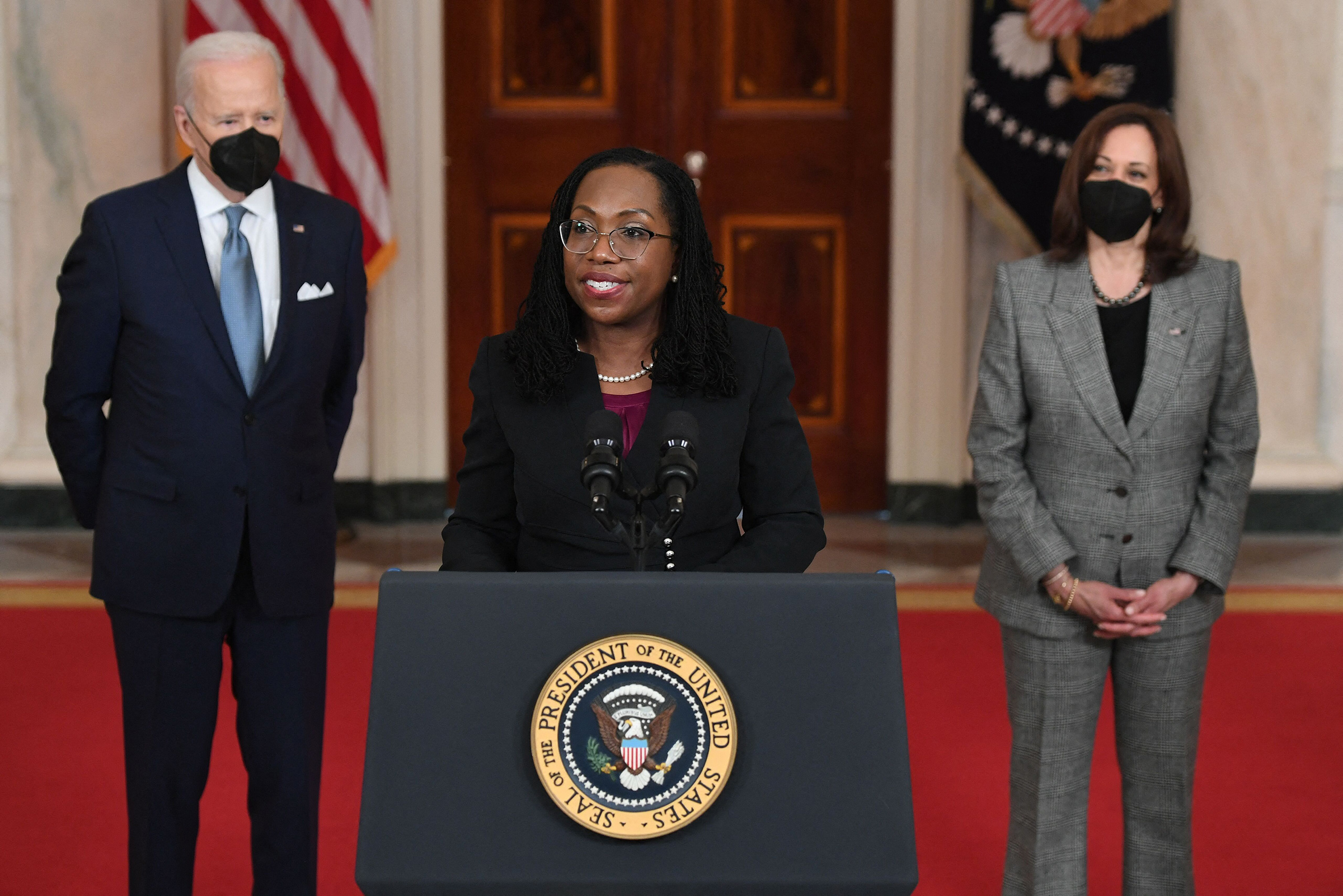Following Justice Stephen Breyer’s announcement of retirement, President Joe Biden sought his replacement, seeking an individual with remarkable credentials, who is committed to the rule of law and to equal justice. On February 25, President Biden nominated Judge Ketanji Brown Jackson to become the 116th Associate Justice of the United States Supreme Court.
Judge Jackson, 51, was born in Washington, DC, and grew up in Miami, Florida. Her parents attended segregated schools as children and historically Black colleges and universities. She graduated magna cum laude from Harvard University, then attended Harvard Law School, where she became supervising editor of the university’s prestigious Law Review and graduated cum laude. She served as a law clerk to three federal judges, one none other than Justice Stephen Breyer.
Judge Jackson spent seven years in private law practice and was an assistant public defender in Washington, representing defendants who could not afford to hire a lawyer. Judge Jackson also served in the U.S. Sentencing Commission, which sets criteria for federal judges to follow in imposing punishments in criminal cases. Notably, she helped reduce the recommended penalties for nonviolent drug offenders. Additionally, she blocked Trump administration policies that would have allowed removal procedures without a judge’s approval to be extended to more categories of non-citizens.
President Biden first pledged to nominate a Black female U.S. Supreme Court Justice during his candidacy in 2020. He argued that his emphasis to ensure a Black woman on the Supreme Court was meant to “get everyone represented.” His commitment was questioned by several members of the Republican Party, including Texas Senator Ted Cruz on his podcast “Verdict with Ted Cruz” in January, saying, “The fact that he’s willing to make a promise at the outset, that it must be a Black woman, I gotta say that’s offensive. You know, you know Black women are what, 6% of the U.S. population? He’s saying to 94% of Americans, ‘I don’t give a damn about you, you are ineligible.'”
In April 2021, during a confirmation hearing after Biden nominated her to the U.S. Court of Appeals for the District of Columbia Circuit, Judge Jackson was asked what role race would play in her rulings as a judge. She smoothly replied that it would not affect the kind of judge she is but rather “race would be the kind of thing that would be inappropriate to inject in my evaluation of a case.” Jackson was confirmed in a 53-44 vote with the support of all Democrats and three Republican senators. Since then, two of those three senators appear to have changed their minds. One being Lindsey Graham of South Carolina who tweeted regarding Jackson’s nomination: “the radical Left has won President Biden over yet again.”
The Knight News consulted with Queens College students on their thoughts of this choice in nomination as a historic move. Catherine Williams, a jJunior studying political science, is happy at the prospect of having a Black woman’s perspective in a room during judicial reviews. They told us, “I do not know much about Judge Jackson, but I do think it is about time we have a Black woman on the Supreme Court. Black women finally have someone who represents them on the Supreme Court. Someone who will think of them when talking about the law and how it is applied.”
Yeraldo Taveras, junior, and history education major, agrees that this is an important choice and a “good step going forward” as there’s “some long-needed representation” in the Supreme Court. In response to a question about Jackson’s nomination as a strategy he told us, “I do think Biden chose her for strategic reasons because of course, politician.” He added, “I always assume that the Supreme Court nominee is chosen because they align with the President’s ideals the most so it would only make sense for Biden to strategically choose someone he thinks will make similar decisions that he would make given if he was in the same position.”
Supreme Court confirmation hearings are scheduled to begin on March 21st and will last four days. If confirmed, Judge Jackson, who currently sits on the Court of Appeals for the District of Columbia , would become the first Black woman to serve on the Supreme Court. Despite Jackson’s confirmation, the ideological balance on the court would not change, with six conservative justices and three liberal justices, Breyer being among the liberal justices.
In her acceptance of the nomination, Jackson paid homage to Judge Constance Baker Motley, the first Black woman to serve as a federal judge, with whom she shares a birthday: “Today, I proudly stand on Judge Motley’s shoulders, sharing not only her birthday but also her steadfast and courageous commitment to equal justice under law.
She ended her speech powerfully saying, “If I’m fortunate enough to be confirmed as the next associate justice of the Supreme Court of the United States, I can only hope that my life and career, my love of this country and the Constitution, and my commitment to upholding the rule of law and the sacred principles upon which this great nation was founded, will inspire future generations of Americans.”











